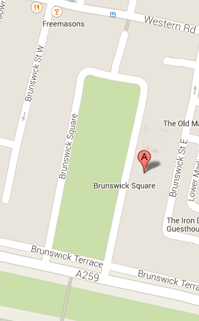Mrs, Simpson's Regency Journal
I have been melancholy of late, and listless with it.
The cholera swept through our town like a wave and, like a wave, it withdrew again - with the last case a baby girl in January. I’d to set-to then, trying to make up my depleted stocks of salves and potions with dried leaves instead of fresh, for all the fields and hedgerows be blanketed with snow. And using dried leaves always disheartens me.
I feel a certain heaviness to my bones and in my spirit which I know cannot be ascribed completely to the long nights and damp clothes and cold floors. Then, yesterday was the feast of St. Valentine; and all the maid were off at daybreak to suck eggs and giggle and see if they would get a paper favour from one of the lads. When, of a sudden, it struck me: ‘tis not the summer hedgerows, nor the long warm nights that I miss: ‘tis my dearest George.
So I have come to my journal now at long last not to cite the litany of my days and nights here, but finally to tell the story of my George for whoever comes after me. For I should like it to be written, somewhere, that this greying, elderly cook was once a faerie princess who abandoned her hearth and home to go off with a Gypsy man and wear scarlet stockings . And that her man was a Prince in disguise, who carried her on his magic horse the length and breadth of England. And soon she became him; and he became her so they knew not where one left off and the other began. And they owned the earth together.
Yet the first time ever I saw him, he looked like a demon to me and I was right afeared!.
I have told of my childhood in Ireland, and how we came to England, and some of the events which led us, My Grandam, my mother, and I, to the cottage in Grantham. ‘Twas in Grantham, then, that I saw a Demon.
I have told also that I had but recently begun to have my Time of Flowers, and one day I set off to a small spinney for to collect the moss that the women in our family used at these times. My Grandam knits small, longish bags which are stuffed with this wondrous moss (for it grows handy all over England!) and we insert these in our bodies. For the life we lead favours not heavy, often odorous strips of cloth, and all the straps and belts to anchor them in place.
I was, therefore, on a private mission, and hoping no-one would see me, for I was of an age when I did not want to be thought a young lady, but a lad. And everyone knows ‘tis only girls who go to the spinney to gather moss. I’d to follow the road only around the bend and then could scurry into my more familiar woods.
So, furtively looking behind me, I hurried into the bend – only to be pulled to a sudden halt by the sight which met my eyes.
Before me was a sad and bony horse, released from its traces and with lines of red blood around it’s nether parts and quarters. A little further away an upturned cart lay in a ditch on top of a load of wood. But in the foreground, not two feet away from me was a huge and shining black horse who blocked the sun from my eyes. Even with the red halo of the sun around his gigantic, rearing hooves, I could see he was not bent on harm, but in warning. And his rolling, stern eye was fixed upon two men.
One, who was half turned away from me, was quite obviously the owner of the black horse. For he, also, stood tall enough to be blocking the sun, and in the red light that etched him I could see his hair too was glossy and shining and tied back with a red ribbon. He wore a beautiful shirt that spoke of good tailoring, even from the back; and his trews fitted him so well they were invisible in the silhouette of him I saw.
But his boots now? Oh, those boots! I had never seen boots like those before! They too were sleek and shining and darker than the dark jet in widow’s brooches. The leather was so supple that I wondered how he ever pulled them on, for they fitted with never a wrinkle despite any move his foot made; the sole seemed to be thicker than is most boots and the heel, though slightly raised, was neither foppish nor fanciful nor straight-out, muck-raking practical.
The owner of these boots was using a long and vicious-looking whip on the back of the other man, of whom I could see no details: for he was on all fours in the powdery summer dust, with his head tucked under his body and his arms crossed for protection.
Though I’d heard nothing, the giant man and his horse pricked up their ears (to be sure people don’t actually move their ears, but they cock their heads slightly and become still.) This the Giant did for naught but a tiny trace of time, and then his raised arm fell to his side and he stopped belabouring his hapless victim. Who, after the slightest of surcease, dropped in a heap on the ground. Without the long, shrill whistle of the whip and the terrifyingly sharp crack! of it meeting it’s target, I could hear horses approaching the bend from the other side. I guessed there were two horses and from the sound of it they were pulling a coach - which sounds very different to a cart, as everyone knows. So it would not be a large, public conveyance, but most probably someone of authority. With no doubt a musket tucked behind the driver.
“Glory be!” thought I. “Now this black-haired man will leap his monstrous beast and both will be gone before yon carriage rounds the bend.”
At that same moment the ‘monstrous horse’ stopped his shrill squeals and dropped his forelegs to the ground. But the one eye I could see remained fixed, and I understood then that it was the man lying on the ground at whom he was rolling them. His ears had raised a little, but were still well back.
Yet rather than flee the scene, the huge man unconcernedly and correctly, coiled the huge whip up neatly, and held it loosely in his hand. He took a step towards the horse and gentled its muzzle briefly, and then for a second only, his eyes swept over me. I was near scared of my wits, but he seemed to dismiss me, and he turned toward the sound of the approaching carriage.
Truth to tell I were somewhat piqued at being considered unworthy even of m’lud’s gaze. So I drew myself up and, I hoped, in a dignified manner, set off towards the bloodstained nag. And ‘twas then I realised that, the day being hot, and not expecting to meet any of the villagers whom I assumed were all in church, I had left off my hated boots and run barefoot through the cool grass; and padded along the dusty road without them as I had spent my childhood doing.
But now, for the first time I was suddenly sore ashamed. For no wonder he’d dismissed me from his sight. The person who wore the most wonderful boots in the world would find the sight of a barefoot lass distressing!
Anxious to show I was not just an ignorant village lass who would not recognise the distinction of those boots I said now, in a strange, hoarse voice “I can physic yon horse, you know”.
He kept his eyes on the bend in the road and said mildly “So can I.”
“Away!” I laughed aloud: “I mean I know how to make her over there better” – I nodded towards the horse, who had now discovered more grazing ground and appeared to be in better spirits than when I arrived. “Not taking it to a quack! Or putting on some patent potion. I mean me, m’self.”
He remained unamazed and was now looking more intently at the bend in the road, around which it was now obvious someone was going to appear directly. Without looking away from the road, he said
“I, myself, can do all of that too.! “
I was completely bereft of words. Was he mocking me? Did he expect me to believe him? What would a gent like him know of healing? He would have been filling his head with book-learning while I was learning The Woman’s Craft. And why would he be wont to say such an outlandish thing anyway. He was a gent. Only a gent had boots like that. Or, I now observed wryly, a horse such as that.
And as I stood confused, around the bend came two smart horses pulling a jaunty yellow carriage. As the driver pulled the horses to a stop, a head appeared from the carriage, accompanied by a torso which sported a bright yellow weskit. I began to feel more myself for now all would be well: ‘twas Lord Lonsdale himself, from The Big House.
“Well m’lud, here comes one of your own to tell your tale to. Mayhap he will be of more help than a half-daft village girl.!” I said tartly.
And then, for the first time, he did turn to look at me. His eyes scanned my face, my faded gown, my bare feet ...and suddenly, unexpectedly, he threw his head back and began to laugh. Not a polite titter or strangled cough, but a full, rich laugh that bubbled up from his very belly and was itself the essence of amusement; and I reckoned that even that wicked horse took a glint to its eye and snickered to itself.
“Oh, small one, what you said!” and he began to laugh again. “So this Jolly Toff who now arrives is one of mine? A noble Lord?” and regardless of Lord Londsdale who was now hullooing to know what was amiss, be broke into another shout of laughter
I gaped at him “But, I beg pardon....but, are you not a gentleman?”
“A gentleman I surely am, little one. But a toff I be not.” He sobered a little then, and started forward to meet Lord Londsdale. Striding forward he said loudly. “I be Romany, lass. And let none ever forget it.”
I stood silent in shock for a moment. Not a giant after all, then?
This man with the magnificent boots and superb piece of horseflesh was a Gypsey?
And ‘twas then that I, too, broke into merry laughter.


